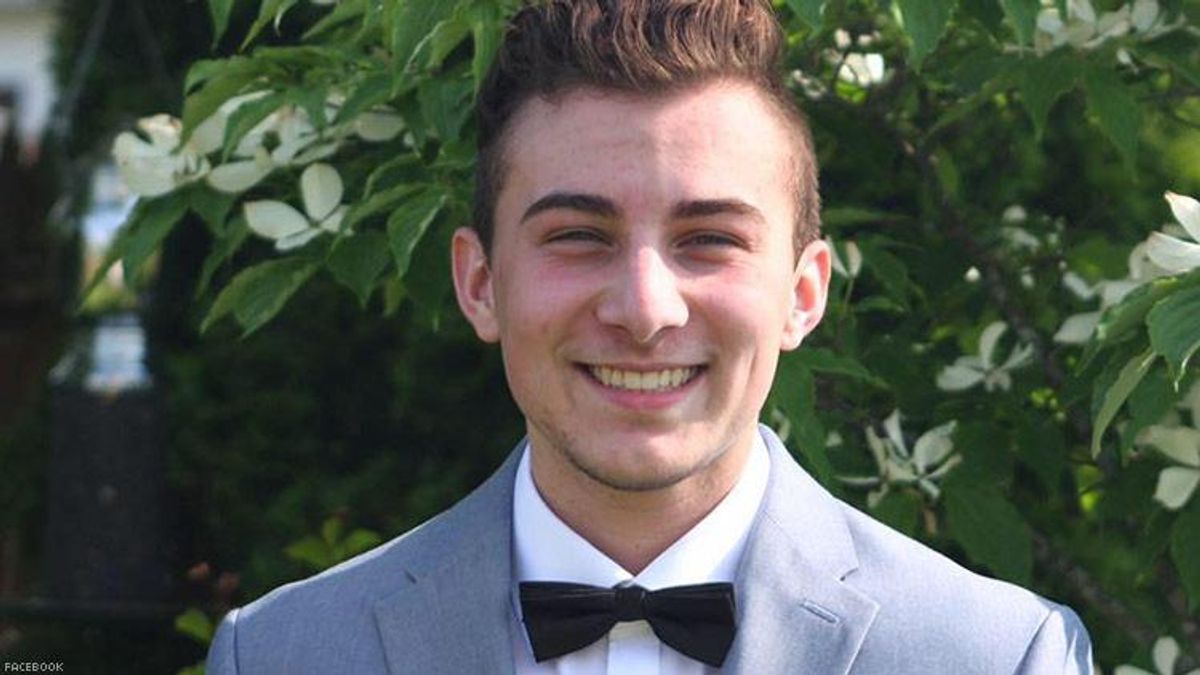In a second victory this week for transgender rights, a federal appeals court has upheld a Pennsylvania school district's policy of allowing transgender students to use the restrooms and locker rooms consistent with their gender identity.
The U.S. Court of Appeals for the Third Circuit, based in Philadelphia, today affirmed a lower court's ruling that the policy of the Boyertown Area School District did not interfere with students' privacy.
"In a rare move, the judges made a preliminary ruling from the bench with the idea of issuing a written ruling later Thursday," the Associated Press reports. The court had heard oral arguments in the case just today, notes the American Civil Liberties Union, which intervened in the case on behalf of LGBT youth groups.
"The court saw that treating transgender students equally does not harm any other students in the school," said Ria Tabacco Mar, staff attorney with the ACLU LGBT & HIV Project, in a statement to media. "All students should have the opportunity to fully participate in school. Boyertown's practice makes that possible."
The district initiated the inclusive policy in the 2016-2017 school year, in keeping with the guidance issued by President Barack Obama's administration on treatment of transgender students. It remodeled the restrooms, shower rooms, and locker rooms at Boyertown Area Senior High School to allow for maximum privacy of students. It continued that policy after the departments of Justice and Education rescinded the guidance in February 2017, a month after Donald Trump became president, as school districts remain free to establish and maintain inclusive policies, even without a directive from the federal government.
A student identified only as Joel Doe sued the district in March 2017, saying his privacy was violated by the presence of transgender students in sex-segregated facilities, and three other students joined the suit. The trial court refused to block the policy.
"The School District has attempted to provide transgender students with the opportunity to live their lives in a manner consistent with their gender identity, while attempting to minimize as much as possible any discomfort felt by other students by offering various forms of privacy protection and alternative arrangements for their use if they feel uncomfortable or need additional privacy," U.S. District Judge Edward Smith of the Eastern District of Pennsylvania wrote last August. "Accordingly, the court finds that the plaintiffs have failed to establish that they are likely to succeed on the merits of their ... action for invasion of privacy against the defendants." The appeals court, which covers Pennsylvania, New Jersey, Delaware, and the U.S. Virgin Islands, upheld this ruling today.
The national ACLU and its Pennsylvania affiliate, along with the law firm Cozen O'Connor, intervened on behalf of transgender student Aidan DeStefano, who graduated in 2017, and the Pennsylvania Youth Congress, a coalition of LGBT youth leaders and youth organizations, including the Boyertown Gay-Straight Alliance.
"Transgender students just want what everyone else wants, to be accepted for who we are," DeStefano said in the ACLU press release. "Reversing the practices that have allowed me and other trans kids to thrive at school would have been devastating. I'm glad other transgender students will know the experience of being treated like any other student."
The Human Rights Campaign praised today's ruling as well.
"As the Trump-Pence Administration and anti-equality activists continue to attack our school children, federal courts nationwide are reaffirming the legal rights and dignity of transgender people," said HRC legal director Sarah Warbelow in a press release. "School should be a safe space for all youth, and we commend the Boyertown Area School District for not only implementing an LGBTQ-inclusive policy, but for fighting to protect their most vulnerable and marginalized students."
Another victory for trans students' rights came Tuesday, when a U.S. district judge in Virginia ruled in favor of transgender boy Gavin Grimm, who had sued his school district for denying him access to the boys' restroom. The judge ruled that Title IX of the Education Amendments of 1972, banning sex discrimination in education, also applied to discriminaton based on gender identity, and ordered Grimm and school administrators to set up a conference to settle the case.

















































































